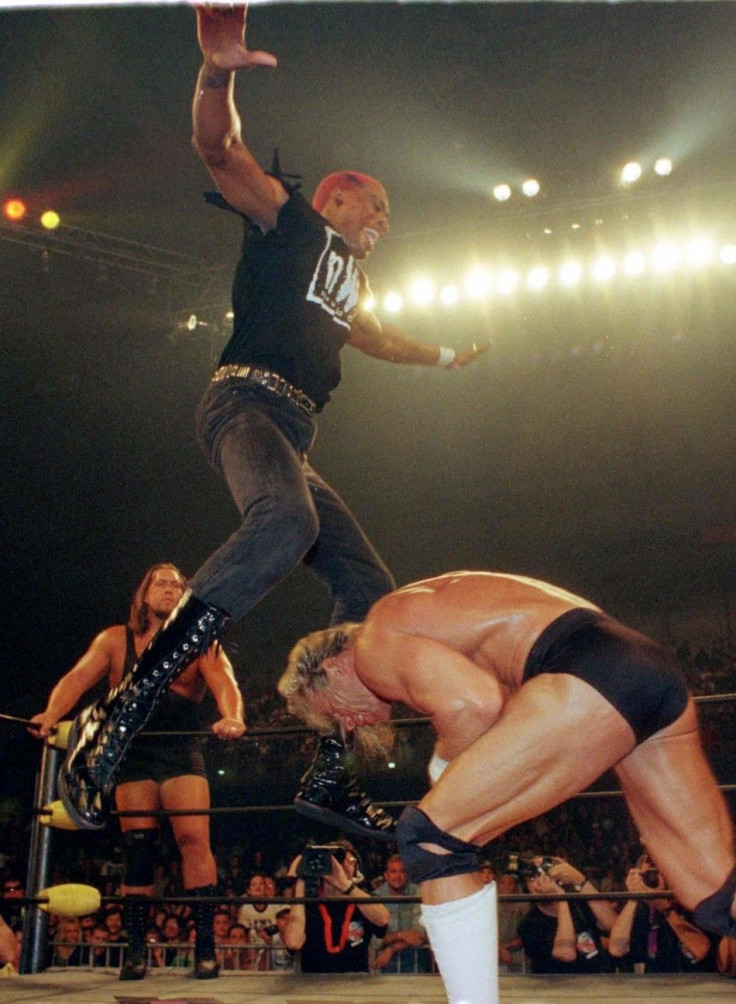Wrestler Scott Hall Now Frail, Weak

Scott Hall was once one of the biggest names in professional wrestling. Though he was never able to attain the status of guys like Hulk Hogan, Andre The Giant or even Dwayne The Rock Johnson, who all used their professional wrestling careers to launch careers in acting, Scott Hall was always respected as one of the best by avid fans of the sport.
He'd been involved in professional wrestling since it first began to gain traction. He'd joined the World Wrestling Entertainment (formerly known as World Wrestling Federation) when a young Vince McMahon began to create a distinct brand in the industry. This was a time when Hulkamania was first beginning to sweep across the nation.
Professional wrestling during the early 1990s consisted of long vignettes from wrestlers between fights and slow action in the ring. Things began to change during the mid-1990s, and Hall was at the forefront of that change. Viewers demanded more action and less grappling to live up to the trash-talking that happened several times before large fights.
In one of his most famous moments, Scott Hall won the second Ladder Match ever in World Wrestling Entertainment, which took place in New York's Madison Square Garden during WrestleMania X. After the match, which he won as his alter ego Razor Ramon, Scott Hall solidified his place in professional wrestling history.
Professional wrestling continued to evolve as time went on, and Hall continued to be one of the major forces of change: He teamed up with several other former wrestlers from Vince McMahon's company and moved over to a company that, at the time, was owned by Ted Turner known as World Championship Wrestling (WCW). This brought on a period of anti-authority and rebellion throughout the wrestling world many now refer to as the Attitude Era.
Scott Hall rode a huge wave of success for more than a decade and earned the respect of some of the top wrestlers of the era, but somehow, he'd failed to capitalize on that success as many had before him. He somehow never crossed over into a recognizable recognizable, household name. While that was always surprising to those interested in wrestling, nothing was more shocking that recent footage revealed of Hall.
In a recent ESPN report, Scott Hall was revealed to be a troubled drug user during his most successful years as a wrestler. His formerly athletic physique and ability to creatively trash talk have completely deteriorated. He's now a shell of his old self. He staggers when he walks and speaks with a slur.
Sean Waltman, also known by his ring names as 1-2-3 Kid and X-pac, says in the report that he's been waiting for Scott Hall to die for the past year or so. Hall's body looks weathered and he is noticeably less healthy than other wrestlers from the era including Hulk Hogan and Steve Nash.
In a low moment during the show, Scott Hall is shown wresting in an independent wrestling circuit with nearly no motor abilities. He can hardly stand and is shown falling over several times during the event. It's been reported that he was checked into the hospital immediately after the show. According to medical reports, he had overdosed on opiates and benzodiazepines before he'd entered the ring that night.
The current condition of Scott Hall came as a shock to many wrestling fans, who'd watched for years as he transformed how bad guys, known as heels to those in the professional wrestling industry, presented their personalities. It appears that Hall has allowed many aspects of his alter egos leak into his personal life. What's more fascinating is the likeness of his real-life story to the storyline of Darren Aronofsky's movie The Wrestler.
© Copyright IBTimes 2025. All rights reserved.





















